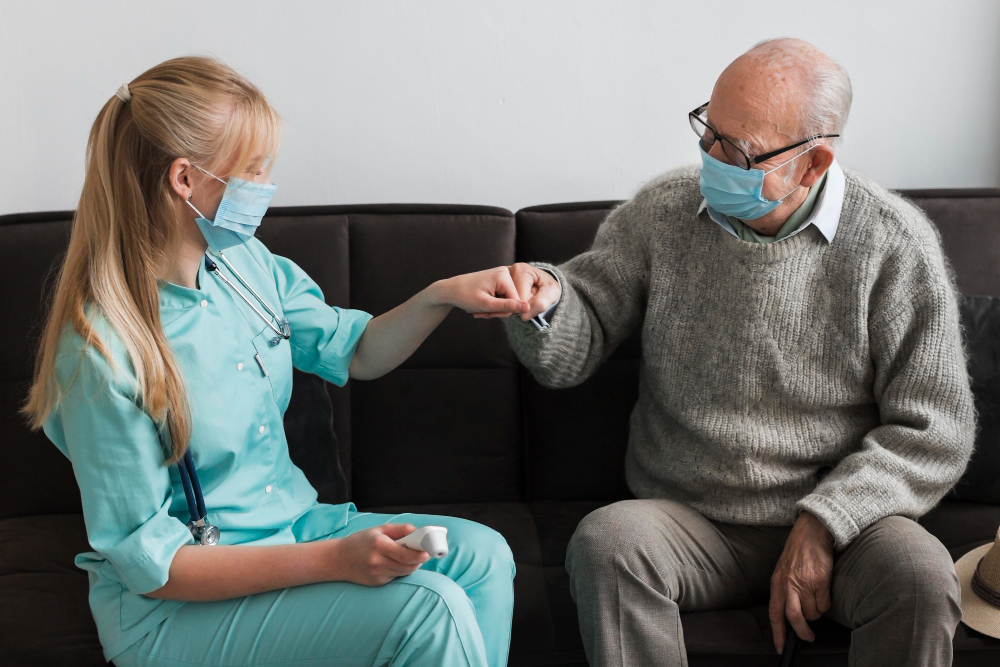
The importance of mental health in seniors has become a critical topic of discussion. While much attention is often given to physical health, mental well-being plays an equally significant role in the overall quality of life for seniors. Understanding and addressing the mental health needs of older adults can lead to improved health outcomes, increased independence, and a more fulfilling life.
The Mental Health Challenges Faced by Seniors
Senior loved ones face unique mental health challenges that can significantly impact their well-being. Common mental health issues in seniors include:
Depression
Depression is prevalent among seniors and is often under diagnosed. Factors such as loss of loved ones, retirement, isolation, and health issues contribute to feelings of sadness and hopelessness.
Anxiety
Many seniors experience anxiety due to health concerns, financial worries, and fear of losing independence. Anxiety can lead to physical symptoms such as insomnia, fatigue, and headaches.
Cognitive Decline
Conditions like dementia and Alzheimer's disease affect cognitive functioning, memory, and behavior. These conditions can be distressing for both seniors and their caregivers
Loneliness and Social Isolation
Seniors may experience loneliness due to the loss of friends and family, mobility issues, or relocation to assisted living facilities. Social isolation is linked to increased risks of depression and cognitive decline.
Grief and Loss
Coping with the death of loved ones is a common experience for seniors, leading to profound grief and emotional distress.
The Impact of Mental Health on Physical Health
The connection between mental and physical health is well-established. Poor mental health can worsen existing health conditions and lead to negative health outcomes.
For instance
Chronic Illness
Depression and anxiety can worsen the symptoms of chronic illnesses such as diabetes, heart disease, and arthritis.
Immune Function
Stress and depression can weaken the immune system, making seniors more susceptible to infections and illnesses.
Healthcare Utilization
Seniors with untreated mental health issues often have higher healthcare utilization rates, including more frequent doctor visits and hospitalizations.
Mortality Rates
Studies have shown that depression and other mental health issues are associated with higher mortality rates in seniors.
Given these impacts, it is crucial to address mental health issues in seniors proactively and holistically.
Promoting Mental Health and Well-being in Seniors
Identifying and Addressing Mental Health Issues
Identifying mental health issues in seniors can be challenging, as symptoms may overlap with physical health conditions or be dismissed as a normal part of aging. Healthcare providers, caregivers, and family members should remain vigilant for signs of mental distress, including
Changes in mood or behavior
Loss of interest in activities
Difficulty concentrating or making decisions
Changes in appetite or sleep patterns
Social withdrawal
Early intervention and treatment are key to improving mental health outcomes. Treatment options may include
Psychotherapy
Cognitive-behavioral therapy (CBT) and other forms of therapy can help seniors manage depression, anxiety, and grief. Elder Care Service Providers in Kolkata provide Psychotherapy services for senior loved ones to help them feel relaxed and stress-free.
Medication
Antidepressants and anti-anxiety medications may be prescribed to alleviate symptoms. Medication should be carefully monitored to avoid side effects or interactions with other drugs.
Support Groups
Joining support groups can provide seniors with a sense of community and belonging, reducing feelings of isolation.
Encouraging Social Connections
Social connections are vital for maintaining mental health in seniors. Here are some ways to promote social engagement:
Community Centers
Encourage seniors to participate in activities at local community centers, which often offer classes, workshops, and social events.
Volunteering
Volunteering provides seniors with a sense of purpose and an opportunity to connect with others.
Technology
Help your senior loved ones stay connected with family and friends by teaching them how to use technology for video calls and social media. Show them how to set up and use apps for video calls and guide them through social media platforms like Facebook to keep in touch with loved ones.
Promoting Physical Health
Physical health and mental health are interconnected. Encouraging seniors to stay physically active can improve both their physical and mental well-being:
Exercise
Regular exercise has been shown to reduce symptoms of depression and anxiety. Activities such as walking, swimming, and yoga are suitable for seniors.
Nutrition
A balanced diet rich in fruits, vegetables, and whole grains supports brain health and can improve mood.
Sleep Routine
Encourage good sleep routine practices, such as maintaining a regular sleep schedule and creating a comfortable sleep environment.
Addressing Cognitive Health
Maintaining cognitive health is essential for seniors' mental well-being. Strategies to support cognitive functioning include:
Mental Stimulation
Activities like puzzles, reading, and learning new skills can keep the brain active and engaged.
Routine Health Check-Ups
Regular health check-ups can help identify and manage conditions that affect cognitive health. Elder care services offer convenient Doctor Assistance Services that bring medical support and consultations right to senior loved ones’ home, ensuring they receive care without the hassle of travel.
The importance of mental health in seniors cannot be overstated. As the population continues to age, addressing the mental health needs of seniors is essential for promoting their well-being and quality of life. By understanding the unique challenges faced by seniors and implementing strategies to support their mental health, we can ensure that older adults live fulfilling, happy, and healthy lives.